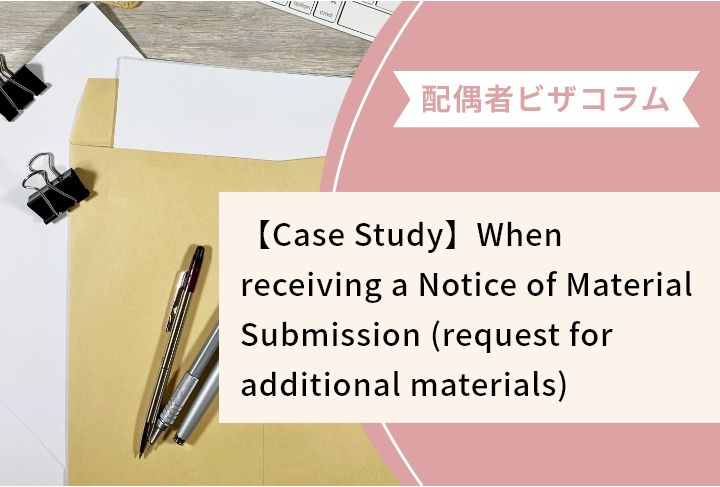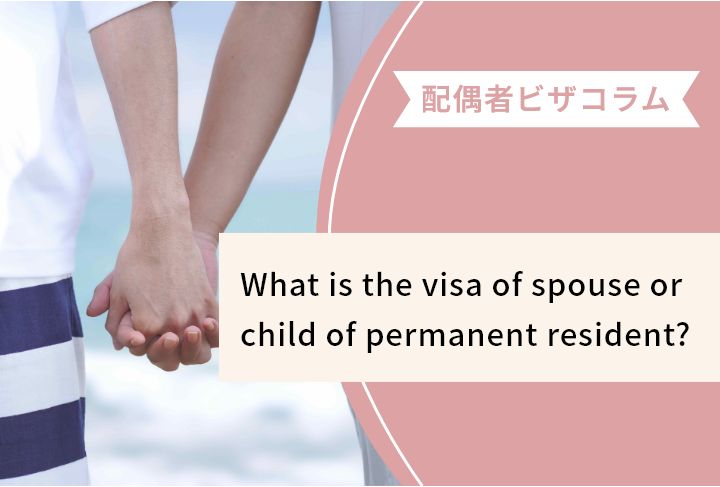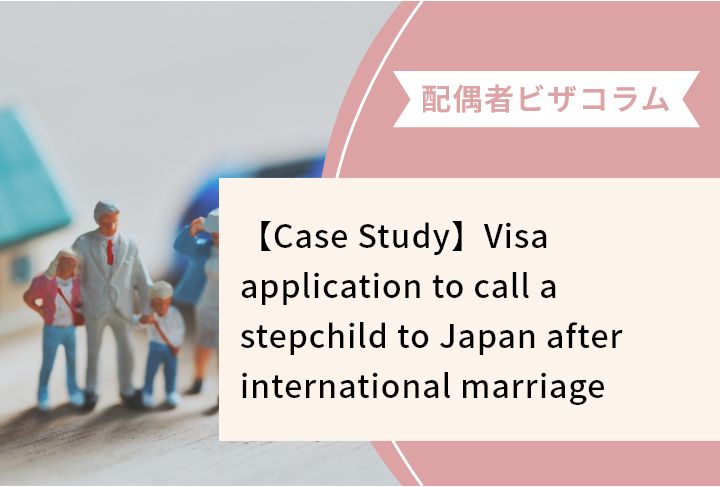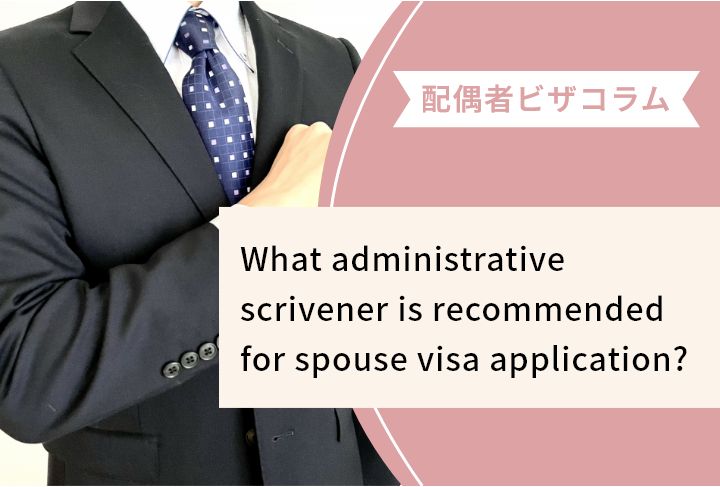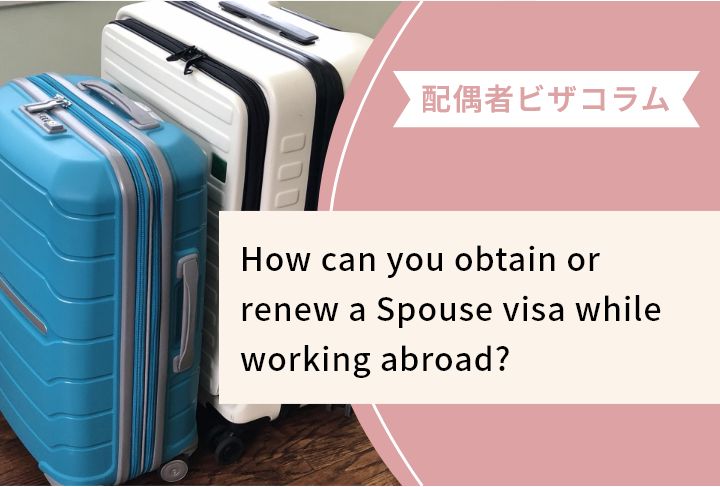【Case Study】An administrative scrivener explains the Special Permission for Landing
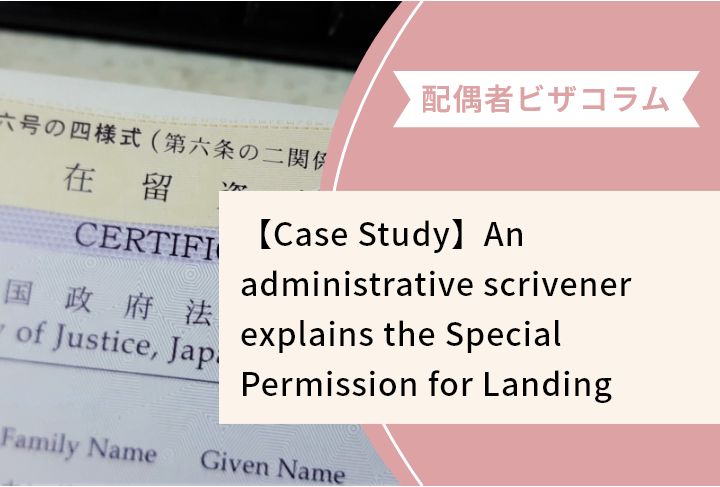
【Case】
Ms. A, a Japanese-Brazilian, came to Japan on a temporary visitor visa to live with her mother who lives in Japan. However, Ms. A’s application for the change to a long-term resident visa was denied, and she became an overstayer. Ms. A applied for Special Permission to Stay in Japan at an immigration bureau, but she could not obtain permission and a deportation order was issued eventually.
Ms. A was dating a Japanese male whom she met during her overstay. She got married during her stay in Japan and got a child. Ms. A filed an action for the revocation of disposition of issuance of a written deportation order, but she lost the case in the first instance. After that, the written deportation order was enforced against her, and she returned to Brazil with her child.
In this case, because Ms. A became an overstayer while staying in Japan, she will be denied landing for 5 years from the day she left Japan. Nevertheless, even if there is a reason for denial of landing, her landing might be specially permitted, which is called a Special Permission for Landing, in practice.
This time, an administrative scrivener specialized in immigration matters will explain the Special Permission for Landing, with the case example.
Index
1. Provisions of the Immigration Act regarding Special Permission for Landing
When a foreigner is landing in Japan, he/she must undergo a landing inspection at the airport or seaport where he/she lands and must obtain a landing permission. There are roughly 4 statutory requirements for such landing permission (Article 7, paragraph 1 of the Immigration Act), and one of them says that the foreigner must not fall under any of the grounds for denial of landing.
In the case of Ms. A, she will be denied landing in Japan for 5 years because her case falls under the grounds for denial of landing as provided in Article 5, paragraph 1, item (ix)(b) of the Immigration Act. Typical reasons for denial of landing include drug offenses, violations of the Prostitution Prevention Law, and convictions of imprisonment for 1 year or more (including suspended sentence).
(Reference article)
When the application set forth in paragraph (2) of the preceding Article is made, an Immigration Inspector must conduct an examination of the Foreign National as to whether or not the Foreign National conforms to each of the following conditions for landing in Japan […]:
(iv) the Foreign National must not fall under any of the items of Article 5, paragraph (1)
(omitted)
A Foreign National who falls under any of the following items is denied permission to land in Japan:
(ix) a person who falls under any of sub-items (a) through (d) below where the period set forth in the relevant provisions has not yet elapsed:
(b) a person who has been deported from Japan for any of the reasons set forth in any of the items under Article 24 […] and who has not previously been deported from Japan […]: 5 years from the date of deportation.
Even if a foreign national falls under the grounds for denial of landing, the Minister of Justice may permit landing of the foreign national when considering that it is appropriate to permit the landing of the foreign national. The Immigration Act provides the special case of decision by the Minister of Justice as follows:
(Reference article)
In making a decision as set forth in paragraph (3) of the preceding Article, the Minister of Justice may grant special permission for landing to the Foreign National concerned if they fall under any of the following items, even if the Minister finds that the objection filed is unreasonable:
(i) the Foreign National has been granted re-entry permission;
(ii) the Foreign National has entered Japan under the control of another due to Trafficking in Persons; or
(iii) the Minister of Justice finds that circumstances exist that warrant the granting of special permission for landing.
In practice, a Special Permission for Landing is granted most frequently in cases of item (iii) above (“the Minister of Justice finds that circumstances exist that warrant the granting of special permission for landing”).
As you can see from above, while the Immigration Act stipulates the reasons for denial of landing, it also lists cases where landing is specially permitted in order to provide individual relief.
2. Cases where Special Permission for Landing is granted
In what cases is the Special Permission for Landing granted?
If such special exceptions are widely accepted while the grounds for denial of landing are stipulated in the Act, there is no point in setting such grounds for denial of landing. Therefore, in practice, special exceptions are permitted only when there are special circumstances that require humanitarian consideration. There are no statutory requirements for such special exceptions and it is decided by the Minister of Justice at a wide discretion.
The Immigration Services Agency provides information about permitted cases and rejected cases to the public once a year in order to clarify the practical operation of the Special Permission for Landing. By the accumulation of such practical cases, the following 4 criteria standards have come to light.
(2) At least 1 year has passed since the marriage by the time of issuance of the Certificate of Eligibility.
(3) At least 2 years has passed since the deportation by the time of issuance of the Certificate of Eligibility.
(4) In case of deportation after conviction of suspended sentence, the period of suspension has been almost over.
In the case of Ms. A, only about half a year had passed since she was deported from Japan, so she did not meet the requirement (3). Nevertheless, as mentioned above, above requirements are not statutory, so permission is not always given even if all the requirements are met. On the contrary, there are cases where permission is granted even if all requirements are not fulfilled. After all, these 4 requirements were made based on these ideas: (1) Landing shall be allowed because special humanitarian consideration is required (the necessity), and (2) The landing permission will not conflict with national or public interest of Japan (the permissibility).
In the case of Ms. A, as a result of understanding Ms. A’s situation in details by asking her husband questions, we came to believe that she should receive a Special Permission for Landing and so we submitted an application to the immigration office 6 months after the deportation.
3. An administrative scrivener explains an actual case of Special Permission for Landing
Now, we would like to introduce what kind of documents were submitted and what kind of facts were proved in Ms. A’s case.
For a Special Permission for Landing, you will need to submit an Application for Certificate of Eligibility to the immigration office, just like normal cases of inviting a foreigner to Japan. If permission is granted, a specific number of the relevant Article will be written in red on the Certificate of Eligibility, such as “7-1-4” or “5-1-9b” (This means that the denial of landing in the case is not based on any of the special grounds for denial of landing).
The difference between the above application and regular application for a spouse visa is roughly that you need to attach materials which prove the necessity and permissibility of landing.
In Ms. A’s case, in addition to materials demonstrating the formation of marriage, we, as a material proving the existence of the substance of marriage, submitted the record of LINE conversations for 6 months which showed the communication between Ms. A and her husband after Ms. A had left Japan. Besides, Ms. A’s husband was going to see Ms. A and their child in Brazil once every 2 months, so we submitted a copy of his passport and family photos taken in Brazil. Given that her husband was working in Japan and traveled to Brazil taking more than 2 days each way, we could see that he really wanted to do something about the situation.
He also explained the living environment of Ms. A in Brazil. In fact, while staying in Japan, Ms. A suffered from a mental illness due to anxiety about the future and deterioration of the family environment. After returning to Brazil, she had seizures repeatedly and was regularly seeing a doctor because she would suddenly harm herself. To prove this, we submitted a medical certificate made by her doctor. Furthermore, we investigated the security and sanitary environment of Brazil and submitted the research paper as a supporting material. In fact, there was a robbery in the neighborhood and the area was too dangerous to raise a child.
Furthermore, as a document proving the permissibility of landing, we submitted a certificate showing no history of crime by Ms. A. Ms. A had changed her name several times due to her adoption, so we also proved the transition of her name and submitted documents proving that there was no criminal record under any of the previous names.
Moreover, her husband worked for a major company, and this fact also worked positively as it suggests that they will have a stable life in Japan.
Lastly, other than Ms. A’s written statement of regret and her husband’s petition, we also asked his parents to write petitions. When applying for Special Permission for Landing, we recommend to submit petitions written by as many people as possible. Since immigration examiners are also human, such petitions will always remain in their heart, and by such petitions, you can also prove that after returning to Japan, you will have an environment where others can supervise your situation of status of residence.
If you are applying for a normal spouse visa, the application documents are generally about 40 to 50 pages. As a result of preparing the above documents, Ms. A’s application documents exceeded 200 pages. Although the examination period lasted for as long as 6 months, the Certificate of Eligibility was issued after the first application. In this case, Ms. A obtained Special Permission for Landing only 1 year after leaving Japan.
4. Summary of “An administrative scrivener explains Special Permission for Landing”
In the examination concerning the Special Permission for Landing, the Minister of Justice has a wide range of discretionary power, and the permission rate is low. For that reason, this type of application is said to be the most difficult application among all immigration applications. In most cases, the permission is granted after numerous times of application, and some people cannot get permission even after 10 years of their departure from Japan.
In particular, those who were deported due to drug offenses or violations of the Anti-Prostitution Act tend to have difficulty in obtaining the permission. It is rare to receive the permission after the first application, like Ms. A’s case. Ms. A had a child of Japanese nationality and her husband had traveled to Brazil many times after Ms. A’s deportation. These were probably the major factors for how she managed to obtain permission so quickly.
We hope this article will be helpful for those who have been failing to get permission for many years.








